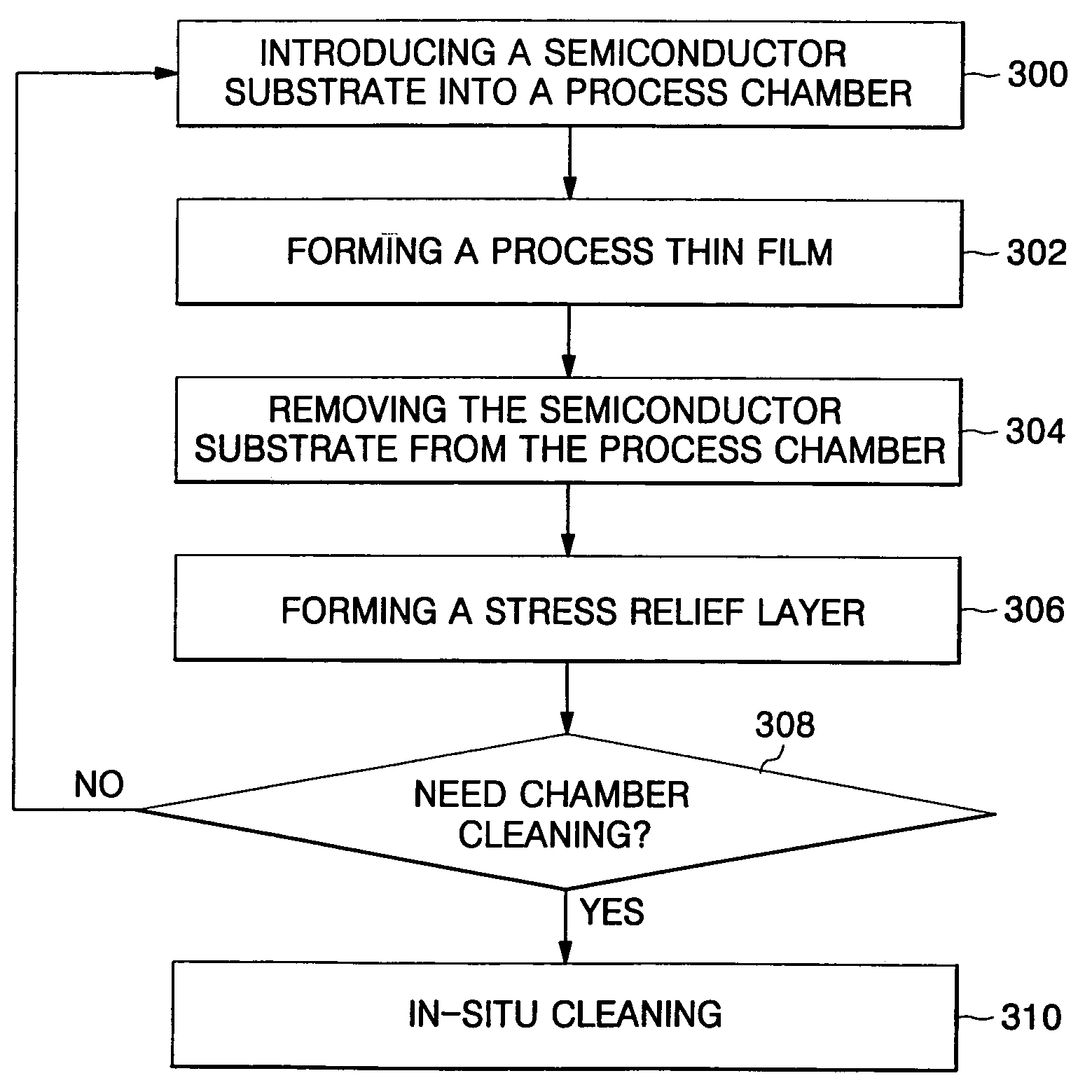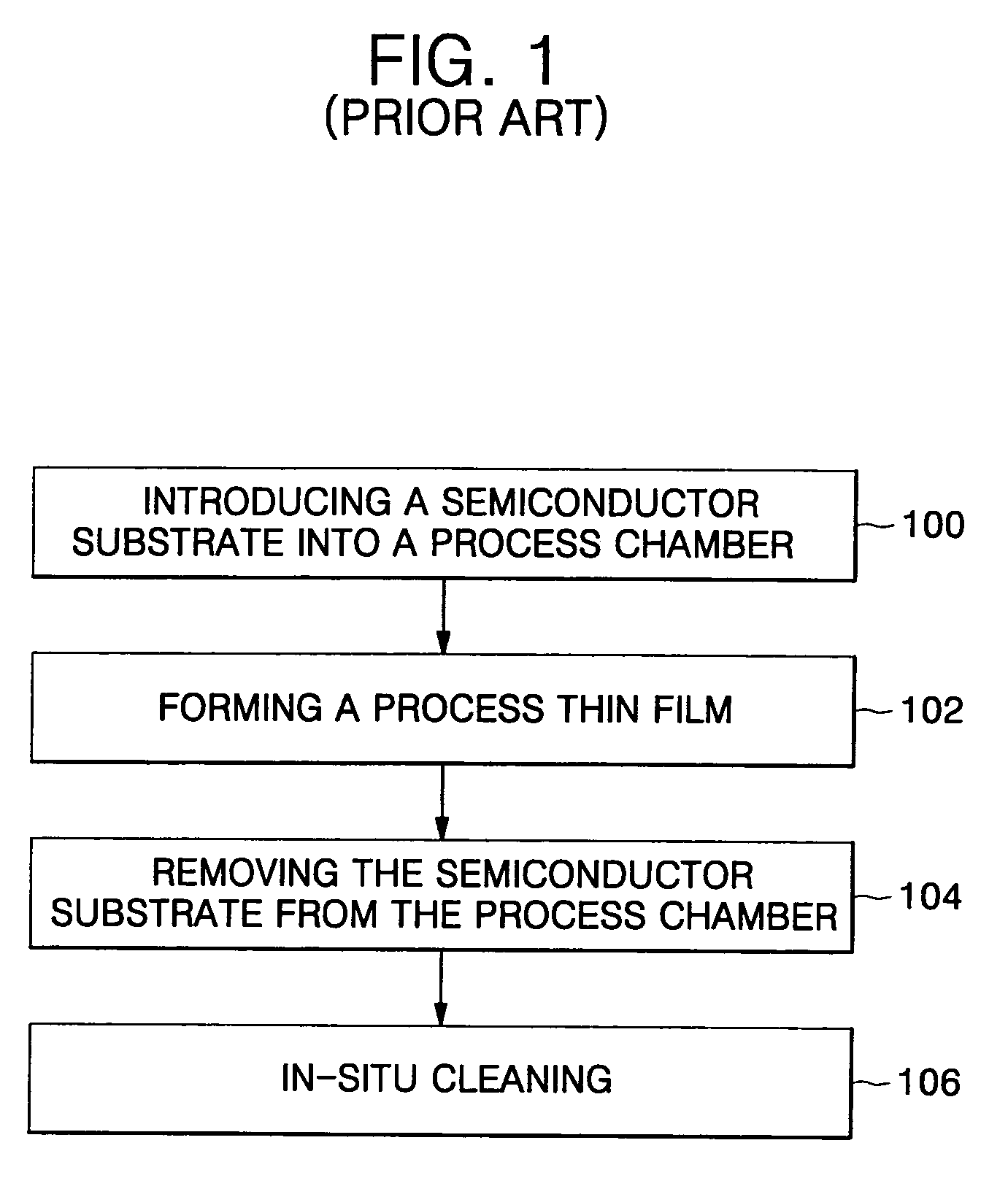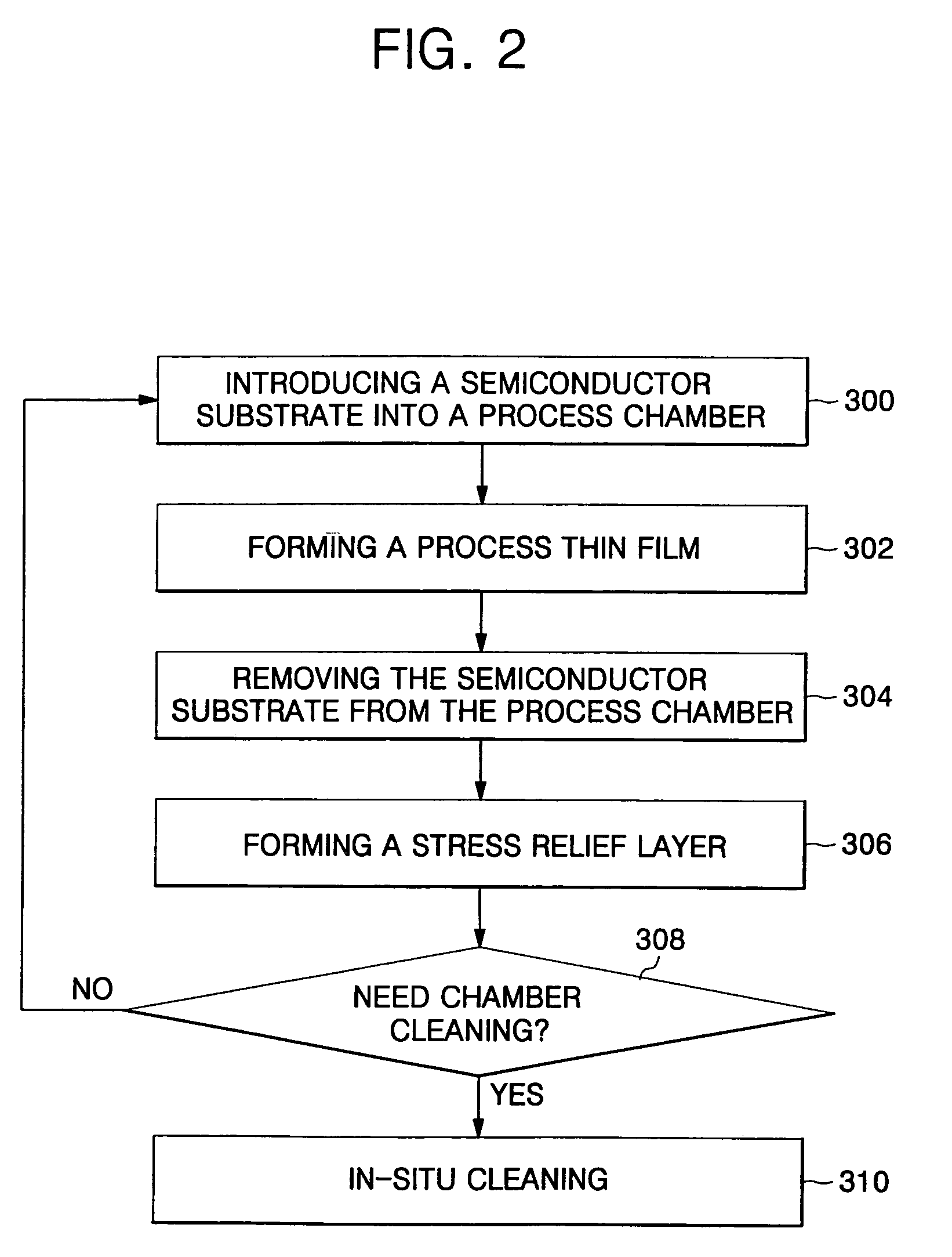Method of forming thin film for improved productivity
a thin film and productivity technology, applied in the direction of cleaning using liquids, coatings, chemistry apparatus and processes, etc., can solve the problems of large loss in production yield, contaminated by impurities in the atmosphere, unsatisfactory thin film formation, etc., to increase the manufacturing productivity of semiconductor devices, shorten the process time, and increase the cleaning period of the process chamber
- Summary
- Abstract
- Description
- Claims
- Application Information
AI Technical Summary
Benefits of technology
Problems solved by technology
Method used
Image
Examples
Embodiment Construction
[0024]FIG. 2 is a flow chart illustrating a method of forming thin films according to embodiments of the present invention. Referring to FIG. 2, a semiconductor substrate is introduced into a process chamber (step 300). Then, a process thin film is formed on the semiconductor substrate (step 302). While the process thin film is formed on the semiconductor substrate, a chamber coating layer is formed on the inner walls of the process chamber. The chamber coating layer is the same film as the process thin film. In the embodiments of the present invention, the process thin film and the chamber coating layer may be hafnium oxide layers formed by an ALD method. Then, the semiconductor substrate on which the process thin film is formed is removed from the process chamber (step 304). Then, in the state that the semiconductor substrate is removed from the process chamber, a stress relief layer is formed on the chamber coating layer (step 306).
[0025]The stress relief layer according to one e...
PUM
| Property | Measurement | Unit |
|---|---|---|
| time | aaaaa | aaaaa |
| pressure | aaaaa | aaaaa |
| temperature | aaaaa | aaaaa |
Abstract
Description
Claims
Application Information
 Login to View More
Login to View More - R&D
- Intellectual Property
- Life Sciences
- Materials
- Tech Scout
- Unparalleled Data Quality
- Higher Quality Content
- 60% Fewer Hallucinations
Browse by: Latest US Patents, China's latest patents, Technical Efficacy Thesaurus, Application Domain, Technology Topic, Popular Technical Reports.
© 2025 PatSnap. All rights reserved.Legal|Privacy policy|Modern Slavery Act Transparency Statement|Sitemap|About US| Contact US: help@patsnap.com



